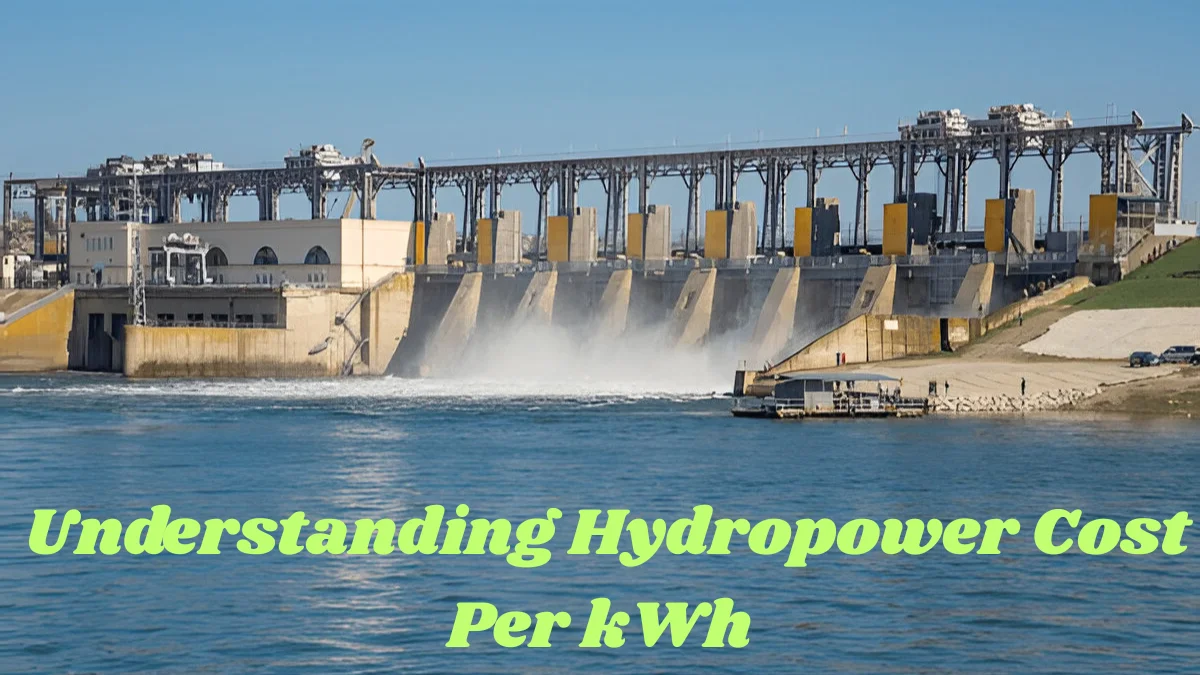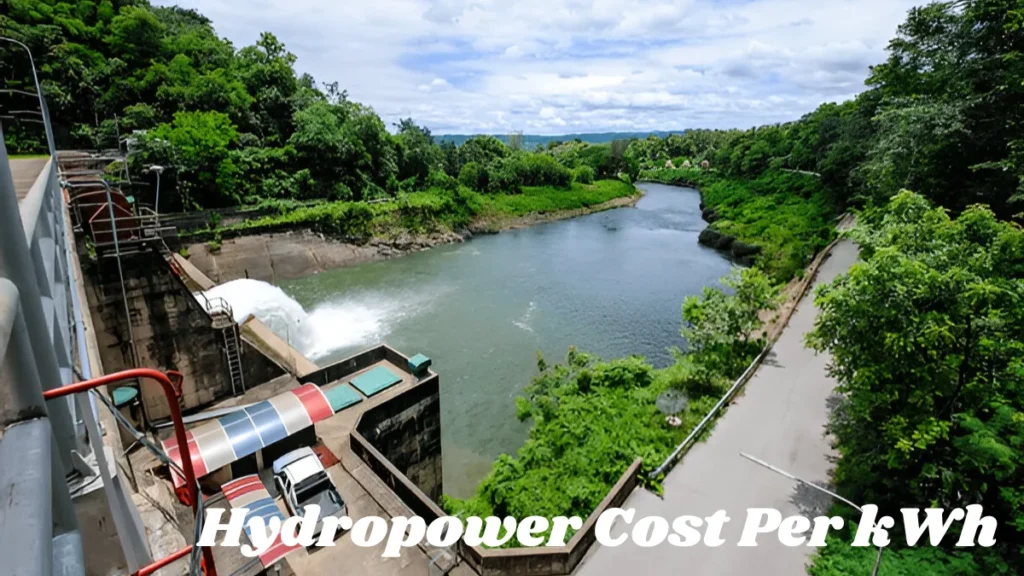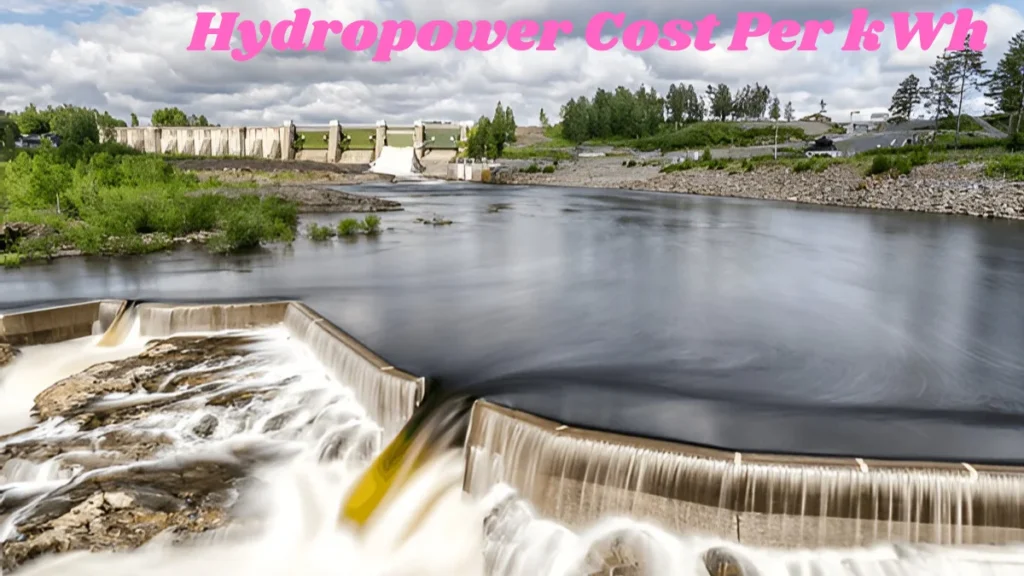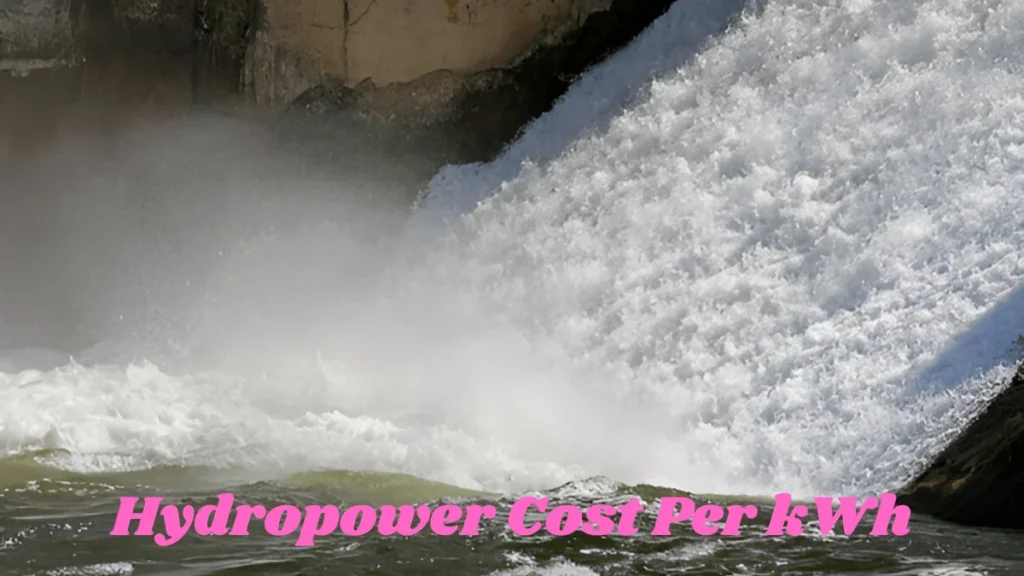
Table of Contents: hydropower cost per kwh
Hydropower is one of the oldest and most widely used sources of renewable energy. But when we talk about switching to greener energy, many folks ask the same question: “How much does hydropower really cost per kilowatt-hour (kWh)?” Let’s dive deep into the world of water-powered electricity and explore its cost, benefits, and comparisons with other sources.
💧 What Is Hydropower?
A Quick Definition
Hydropower—also known as hydroelectric power—is energy produced by harnessing the force of moving water. Think of rivers, dams, or waterfalls. The flowing water spins turbines, which generate electricity. It’s as simple as turning water pressure into power!
How Hydropower Works
Picture this: water flows from a reservoir, goes through a dam, spins a turbine, and voilà! You’ve got electricity. It’s clean, efficient, and uses nature’s flow to light up our homes and businesses.
⚡ Measuring Electricity Costs: What Is kWh?
Understanding the Term “kWh”
A kilowatt-hour (kWh) is a measurement of energy. It tells you how much electricity you’re using. For example, if your coffee maker uses 1 kilowatt of power and you run it for one hour, that’s 1 kWh. Simple, right?

💸 Average Cost of Hydropower per kWh
Global Average Price
Worldwide, the average cost of hydropower ranges between $0.03 to $0.10 per kWh. That’s quite low compared to many other sources, especially fossil fuels.
US-Specific Hydropower Costs
In the United States, the cost is around $0.02 to $0.05 per kWh, depending on location and facility size. That’s a bargain! It’s why many utilities love hydropower—low cost, low maintenance, and long-term savings.
📊 Factors Affecting the Cost of Hydropower
Construction and Infrastructure
Building a dam or hydropower plant is no small feat. It takes years and millions of dollars. These upfront costs are hefty, but they pay off over decades of operation.
Operation and Maintenance Costs
Compared to fossil fuel plants, hydropower facilities are relatively cheap to run. Once the system is built, the main costs are maintenance and occasional upgrades.
Geography and Climate
Not every location is suitable for hydropower. Mountains, rivers, and rainfall patterns all play a big role. A flat, dry area? Not ideal. A mountainous river valley? Perfect!
Environmental and Regulatory Costs
Environmental impact studies, fish ladders, and wildlife preservation all add to the bill. But they’re necessary to keep nature safe while producing power.
🔌 Hydropower vs Other Energy Sources
Hydropower vs Solar
Solar is great, especially for rooftops, but it has limits—cloudy days and battery storage issues. Hydropower, on the other hand, provides consistent energy 24/7.
Hydropower vs Wind
Wind is powerful, but inconsistent. Hydropower is like that reliable friend who’s always there when you need them.
Hydropower vs Fossil Fuels
Fossil fuels are fast and powerful but come with pollution and high costs. Hydropower offers a clean, long-term solution that’s also easier on your wallet over time.
📈 Pros and Cons of Hydropower in Terms of Cost
Advantages
- Low operating costs
- Long plant lifespan (50-100 years!)
- Stable electricity prices
- Great for large-scale needs
Disadvantages
- High initial investment
- Site-specific limitations
- Environmental impact during construction

🕒 Is Hydropower Cost-Effective in the Long Run?
Absolutely! Despite high upfront costs, the long operational life and low maintenance mean hydropower becomes very cost-effective over time. Once built, it’s like a gift that keeps on giving.
🏛️ How Governments Influence Hydropower Pricing
Subsidies and Incentives
Many countries offer financial help, tax breaks, or funding to encourage hydropower development. These incentives can significantly reduce the cost per kWh.
Regulations and Licensing
Getting approval to build a hydropower plant can be a long process. Regulations are strict, especially in areas with sensitive ecosystems. These legal steps can affect project timelines and costs.
🔮 Future Trends in Hydropower Cost
Innovations and Technological Advancements
Newer technologies like pumped storage, small modular dams, and AI-based maintenance are helping reduce costs and improve efficiency.
Sustainability and Environmental Goals
As the world shifts to cleaner energy, hydropower is becoming even more attractive. Governments are investing more in renewable tech, which may drive prices even lower.

✅ Conclusion: hydropower cost per kwh
Hydropower is one of the cheapest and most reliable forms of renewable energy. While the cost per kWh varies depending on location, infrastructure, and environmental considerations, it remains a solid long-term investment in clean energy. If you’re looking at hydropower from a cost perspective—it’s a smart move for both your wallet and the planet.
❓ FAQs: hydropower cost per kwh
1. How much does hydropower cost per kWh on average?
Globally, it ranges from $0.03 to $0.10, while in the U.S., it can be as low as $0.02 per kWh.
2. Is hydropower cheaper than solar energy?
Yes, in many cases, hydropower is more cost-effective, especially over the long term.
3. What affects the cost of hydropower?
Construction, location, maintenance, and regulatory factors all influence the final price.
4. Is hydropower available everywhere?
No, it’s location-dependent. It requires specific geographical features like rivers or elevation changes.
5. How long does a hydropower plant last?
Many can operate for 50 to 100 years, making them a great long-term investment.
